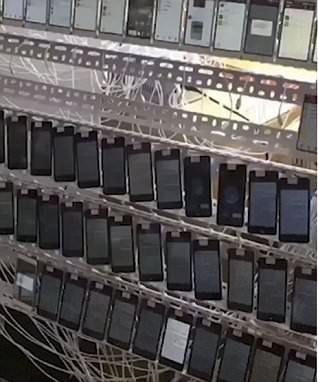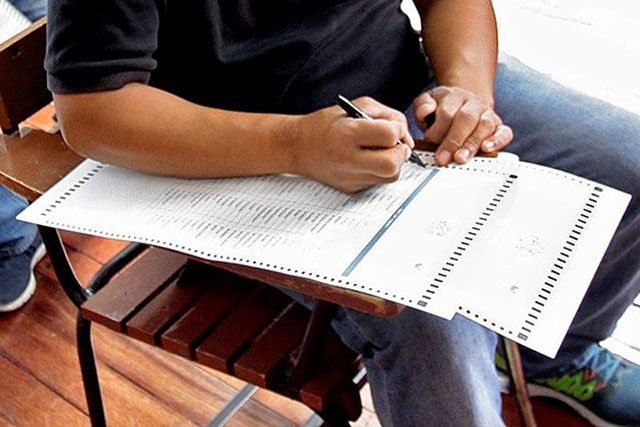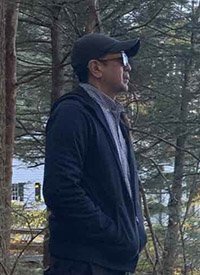Practice Mental Hygiene for Philippine Democracy
/In 2020, 73 countries headed towards strongman rule while only 28 moved in the opposite direction. He coined the term “democratic breakdown” to describe countries experiencing a gradual disappearance of democratic rights and procedures such as the rule of law and free elections.
If an established democracy such as the United States is under siege, what will happen to the less-rooted ones? And with the backdrop of a global pandemic, the Philippines’ fragile economy and institutions are major comorbidities which render the country at increased risk for developing acute democracy distress syndrome.
Fake News
“Fake news” was President Donald Trump’s favorite epithet against media criticism, yet ironically, this cottage industry was pioneered by news sites and social media platforms that were sympathetic to his cause.
During a press conference with Finnish President Sauli Niinistö last October 2, 2019. Former U.S. President Trump took credit for creating the term “fake news.” (Source: AP/Washingtonian)
For example, in the run-up to the 2016 U.S. presidential election, the article “Pope Francis Shocks World, Endorses Donald Trump For President” garnered almost a million engagements before it was taken down amidst the Vatican’s vehement denials. Trump’s close win raises the question of whether such fantastically false stories altered public opinion and impacted the election results.
Fake news, simply defined, is false news. But the degree of falsity varies -- from a complete fabrication to a sneaky half-truth. The latter is a more dangerous variant as a lie laced with snippets of truth is more believable. The motive for propagation also differs -- from the political partisans who wish to sway public opinion, to the trolls that are paid based on the number of click-baits to their story.
Trolls have truly infected the Philippine social media landscape, and we will certainly see a further surge as we approach the May 2022 elections.
A sample of mobile phones being used for click fraud and trolling activities to sway people’s opinions (Source: goodgovernaceforum.ph)
Fake news is game-changing Philippine politics by preying on vulnerable voters. Many are trapped inside information bubbles that continue to generate false and misleading claims that are resistant to correction.
Indeed, the pandemic of fake news has become an insidious virus that is now part of our new normal. How do we guard against it? Practice mental hygiene. Get vaccinated with the habit of awareness, verification and critical thinking.
Be aware. Knowing that fake news is all over the information ecosystem, do not believe everything you read, watch or hear. Prevent community spread: do not be quick to share or forward information. Do not disseminate gossip. Break the contagion.
Verify information. Quarantine the story until you have validated the particulars and examined its provenance. Do contact tracing: identify the media outfit or social media site that generated the data and ascertain whether they have been contaminated by bias or political influence. Receive boosters from credible thought leaders.
Be a critical thinker. Practice analytical distancing. Mask yourself with an attitude of healthy skepticism. Isolate facts from fiction, truth from opinion. Some stories may include basic verifiable facts, but look out for the following symptoms: inflammatory language; missing details; one-sided viewpoint. Shun and call out vulgarity.
“Fake news is game-changing Philippine politics by preying on vulnerable voters.”
Misinformation vs. Disinformation
“Fake news" exists within a larger habitat of misinformation and disinformation.
Misinformation is false or inaccurate information that is mistakenly or inadvertently created or spread; the intent is not to deceive. Disinformation is false information that is deliberately created and spread "in order to influence public opinion or obscure the truth" (https://www.merriam-webster.com/dictionary/disinformation).
Let’s face it -- the “free marketplace of ideas” paradigm is broken. Social media has rearranged the stalls where the “resource-full” exploit the various platforms. Hence, it is no longer the best idea, but the moneyed idea that wins.
Soul is to body as an election is to a democracy. And since an “informed” vote is the cornerstone of a free and fair election, a misinformed and disinformed vote will certainly be detrimental to a democracy.
A Filipino voter filling up his ballot (Source: Interaksyon 5)
Voice of the People
The Latin aphorism Vox populi, Vox Dei (Voice of the people is the voice of God) is often used to defend the proposition that the majority in a democratic society knows what is best. I am not sure if the deity agrees. The first known reference to the phrase was actually unfavorable. In 739, Alcuin of York advised the emperor Charlemagne to resist such a dangerous idea since "the riotousness of the crowd is always very close to madness.”
Let’s harken back to the original Jerusalem mob scene.
John 18:37-40 describes the setting: Jesus was brought by the Jewish leaders before the Roman Governor Pontius Pilate who asked him whether he was the king of the Jews.
Jesus parried the question saying: “The reason I was born and came into the world is to testify to the truth. Everyone on the side of the truth listens to me.”
To which the agnostic Pilate replied: "What is truth?" (This biblical question takes special significance amidst the onslaught of fake news.)
Jesus did not respond to Pilate’s query. I imagine an awkward pause between the two with Pilate shaking his head, thinking: “Why am I being dragged into an internal Jewish matter?”
Trying to steer clear, “he went out again to the Jews gathered there and said, ‘I find no basis for a charge against him. But it is your custom for me to release to you one prisoner at the time of the Passover. Do you want me to release “the king of the Jews”?’ They shouted back, ‘No, not him! Give us Barabbas!’” (Did the crowd really know what they were clamoring for or were they just misinformed? The first of Jesus’ seven last words is captured in Luke 23:34: “Father, forgive them; for they know not what they do.”)
The May 2022 elections is shaping up to be an existential battle between polar opposites. This is a moment of truth for Philippine democracy. And the nation’s future.
Voters need to choose well, for unlike the salvific event 2,000 years ago, there may not be a resurrection.
*Before serving as chairperson of the Philippine Commission on Elections (2015-17) and Presidential Commission on Good Government (2010-15) the agency tasked to recover the Marcos ill-gotten wealth, Andy Bautista worked with two international law firms in New York and Hong Kong (1993-2006). He also served as dean of the Far Eastern University Institute of Law (1999-2013).
More articles from Andres D. Bautista






